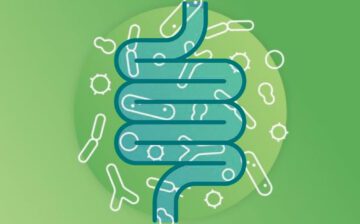
What is the Microbiome?
Our body is inhabited by trillions of bacteria, fungi, and viruses which collectively live on and in our body as a community known as microbiota. Their genome is the microbiome.

The New Year is for many synonymous with making resolutions. Adopting healthier food choices and losing weight are among the most popular health resolutions. Every year, it is estimated that 42% of the population worldwide tries to lose weight [1]. While dieters may succeed in losing weight, often this loss is not maintained over time. Preventing weight regain after a successful weight loss is considered one major challenge.
The efficacy of diets and dietary interventions on weight loss has been the object of numerous studies over the years. Less known, however, is the impact that dietary strategies have on the prevention of weight regain after a weight loss. Van Baak and Mariman [2] recently conducted a systematic review and meta-analysis of studies investigating the effect of dietary interventions, including increased protein intake, lower glycemic index, green tea/epigallocatechin-3-gallate, whole-grain enriched diet/fiber, and conjugated linoleic acid supplementations, on weight regain in overweight or obese adults. Published in Nutrients, the review includes 2875 participants from 21 studies spanning from 1997 to 2017. Findings show that increasing the protein content of an ad libitum diet has a favorable effect on weight loss maintenance (standardized mean difference [SMD] = -0.17 (95% CI -0.29, -0.05), p = 0.005). The satiating properties of dietary proteins, as well as their effect on lean body mass and thermogenic effect, are some of the potential mechanisms that have been proposed for the beneficial effect of increased protein diets. On the other hand, none of the other dietary interventions were found to have a significant impact on the prevention of weight loss regain.
Currently, randomized controlled trials assessing the effect of dietary strategies on weight maintenance are sparse. As the effectiveness of dietary intervention may differ among individuals, van Baak and Mariman suggest that dietary approaches incorporating several potential beneficial strategies, such as diets that combined higher protein intake along with anti-inflammatory or anti-insulinemic diets, could provide more robust effects on weight loss maintenance. This, however, remains to be validated clinically.
References
[1] van Baak M, Mariman ECM. Mechanisms of weight regain after weight loss — the role of adipose tissue. Nat Rev Endocrinol. 2019; 15(5): 274-287.
[2] van Baak M, Mariman ECM. Dietary strategies for weight loss maintenance. Nutrients 2019; 11(8): 1916.
Disclaimer: Information discussed in this blog is based on the above-mentioned published research article and represents the thoughts, views, and opinions of the authors of the article.